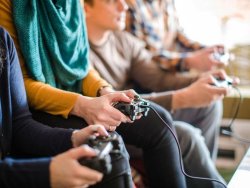
The World Health Organization is adding an unexpected to its list of mental health conditions in 2018. Next year, people who play an excessive amount of video games could find themselves diagnosed with “gaming disorder.” WHO’s beta draft of its upcoming 11th update of International Classification of Diseases characterizes gaming disorders as “a pattern of persistent or recurrent gaming behavior, which may be online or offline, impaired control over gaming, increasing priority given to gaming to the extent that gaming takes precedence over other life interests and daily activities, and continuation or escalation of gaming despite the occurrence of negative consequences.”

The inclusion of gaming disorder in the ICD-11 means health care workers and doctors can now diagnose someone with the condition. The description of the condition continues: “The behavior pattern is of sufficient severity to result in significant impairment in personal, family, social, educational, occupational or other important areas of functioning. The pattern of gaming behavior may be continuous or episodic and recurrent. The gaming behavior and other features are normally evident over a period of at least 12 months in order for a diagnosis to be assigned, although the required duration may be shortened if all diagnostic requirements are met and symptoms are severe.” Not everyone who likes to play video games has gaming disorder — plenty of people play video games without getting a diagnosis. Daphne Bavelier, a professor at the University of Geneva said, depending on the game, and how long and often you play it, video games can be a safe way of improving hand-eye coordination, enhancing problem-solving abilities, relieving stress, connecting people, and living out fantasies, Forbes reported. Gaming becomes a problem only when it causes “impairment in personal, family, social, educational, occupational or other important areas of functioning.” When you stop controlling the game and it starts controlling you — that’s when WHO’s definition of gaming disorder applies.












